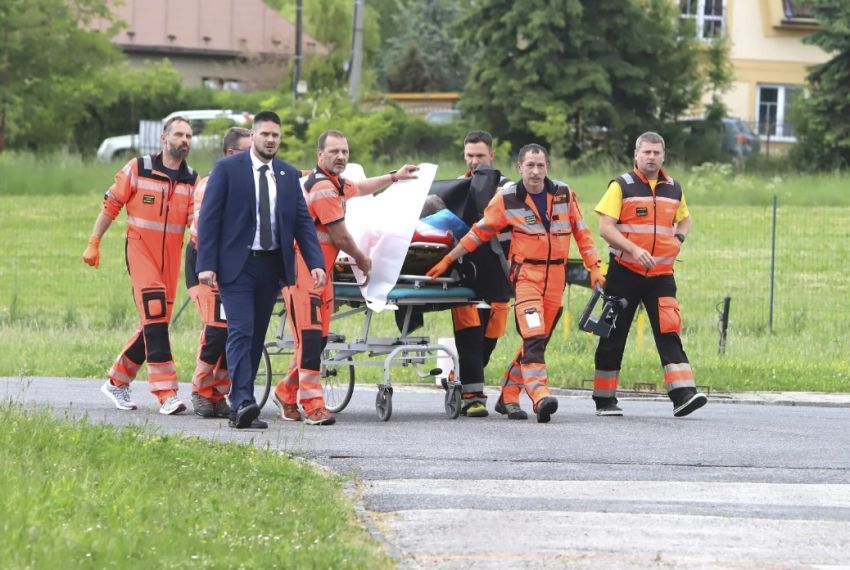#SUS #resources #municipalities #insufficient
The underfunding of procedures in the Unified Health System (SUS) has represented an important bottleneck for municipalities in Rio Grande do Norte, according to the Council of Municipal Health Secretariats of RN (Cosems-RN) and managers interviewed by TRIBUNA DO NORTE during a congress that brings together in Natal, since Wednesday (1st), Health secretaries and mayors from several cities in RN. The objective of the event is to debate the redefinition of SUS in the State over the Council’s 35 years of activity. According to sources, the lack of transfers or their insufficiency from the State and the Federal Government, increases costs for municipalities to up to 40% per year.
According to the Federal Constitution, municipalities must invest at least 15% of the resources collected in public health actions and services. The same index is established for the Federal Government, while the states are responsible for investing at least 12% of their own revenue in shares in the Unified Health System network. The president of Cosems-RN, Maria Elisa Garcia, said, in the However, the current scenario is very different. “Years ago, the Ministry of Health invested around 60% to 70% in shares in the SUS. Today, this percentage is around 30% to 40%, which creates a burden for municipalities”, she details.
The president of the National Council of Municipal Health Secretariats (Conasems), Hisham Hamida, explained that the situation represents an imbalance, where the burden is all on the city halls. “To give you an idea, in 2023, Brazilian municipalities placed, as a whole, R$51 billion above the constitutional minimum,” he detailed. In Natal, the counterpart is around 40% per year, according to the Deputy Secretary of Health, Rayanne Araújo. “Some instances are tripartite, such as Basic Pharmacy, UPA and SAMU. In these cases, the state counterpart is missing”, says Araújo.
Mossoró’s Health Secretary, Morgana Dantas, points out that the values offered by the SUS to service providers are unattractive. In order not to harm assistance, she says that the Municipality usually adds a supplement, which increases its own investments in the network. “We have difficulty obtaining accreditation to perform medium complexity surgeries, because providers are not interested in operating at the SUS price. And then, you have to pay supplements. Mossoró invested 33% of its own revenue in 2023 in the network and, this year, this rate has already exceeded 30%”, she states.
THE NORTH TRIBUNE sought out the RN Public Health Secretariat (Sesap) and the Ministry of Health to comment on the statements. Sesap said in a statement that the issue of SUS underfunding is an issue also highlighted by the State Department of Public Health. “So much so, that during the year 2023, based on efforts with the Ministry of Health, Sesap itself achieved a series of advances in terms of financing for the state network and municipalities, in the field of medium and high complexity”.
According to the Secretariat, almost R$200 million was received for medium and high complexity, while in basic care, through the +APS Potiguar program, RN achieved an increase of approximately R$90 million for family health teams, oral health, health agents and others. “Regarding Natal, Sesap clarifies that the situation is dealt with in a judicial process, in which the Secretariat [Sesap] complies with the determinations issued there”, he informed. The Ministry of Health did not respond to contacts made by the report.
Queue for elective surgeries is still a bottleneck in the State
Another problem commented on by municipal managers is in relation to the queue for elective surgeries in the State. “The main bottlenecks at this point are prostate, vascular and thyroid surgeries. There have been people waiting in line for four, five years, because the State is unable to modernize its own assistance structure”, said Maria Elisa, from Cosems.
In Mossoró, to reduce the long wait, the Municipality began accrediting two hospitals to carry out the procedures. “We have an average of 300 patients on the general surgery queue and around 400 people for gynecological surgery. So, in addition to State regulation, we are now publishing the accreditation of two different hospitals that will help reduce queues”, said Morgana Dantas, the city’s Health Secretary.
On the subject, Sesap stated that Rio Grande do Norte, in 2023, broke the historical record for elective surgeries carried out under state management, with more than 14 thousand procedures in more than 40 private, state or municipal health establishments. “Within this scope, regarding the surgeries under its supervision within the national queue reduction program, Sesap exceeded the initial target stipulated for the first cycle. In 2023 alone, the investment exceeded R$75 million”, highlighted the ministry.
“Since 2019, Sesap has been qualifying and expanding elective surgery services. With the implementation of the Regula Cirurgias system, for the first time in RN it is possible to have full access, control and transparency regarding elective surgeries, providing full information to State and municipal health departments and also to patients. Added to this, the concentration of surgical lists in a single space, which provides more agility and efficiency in treating patients and the resources used, and also the incorporation of new procedures, such as elective cardiac and orthopedic surgeries”, he said. Sesap, without giving details about the number of people waiting for a procedure.
These and other SUS challenges are highlighted at the XVI Congress of City Halls and Municipal Health Departments of RN, which takes place until this Friday (3) in Natal. The event has more than 900 participants, who debate reflections, exchange experiences and recommendations that seek dialogue, resolution and communication between the 167 municipalities in Rio Grande do Norte within the scope of the SUS. “It is an extremely important event, at a time where secretaries can offer knowledge and bring experiences, including from other states,” said Hisham Hamida, president of Conasems.









:watermark(https://f.pmo.ee//logos/4232/4ebd6f5dc62d0c4b6f1961c46e2f0303.png,-2p,-2p,0,18,none):format(webp)/nginx/o/2024/05/18/16082825t1hca12.jpg)
